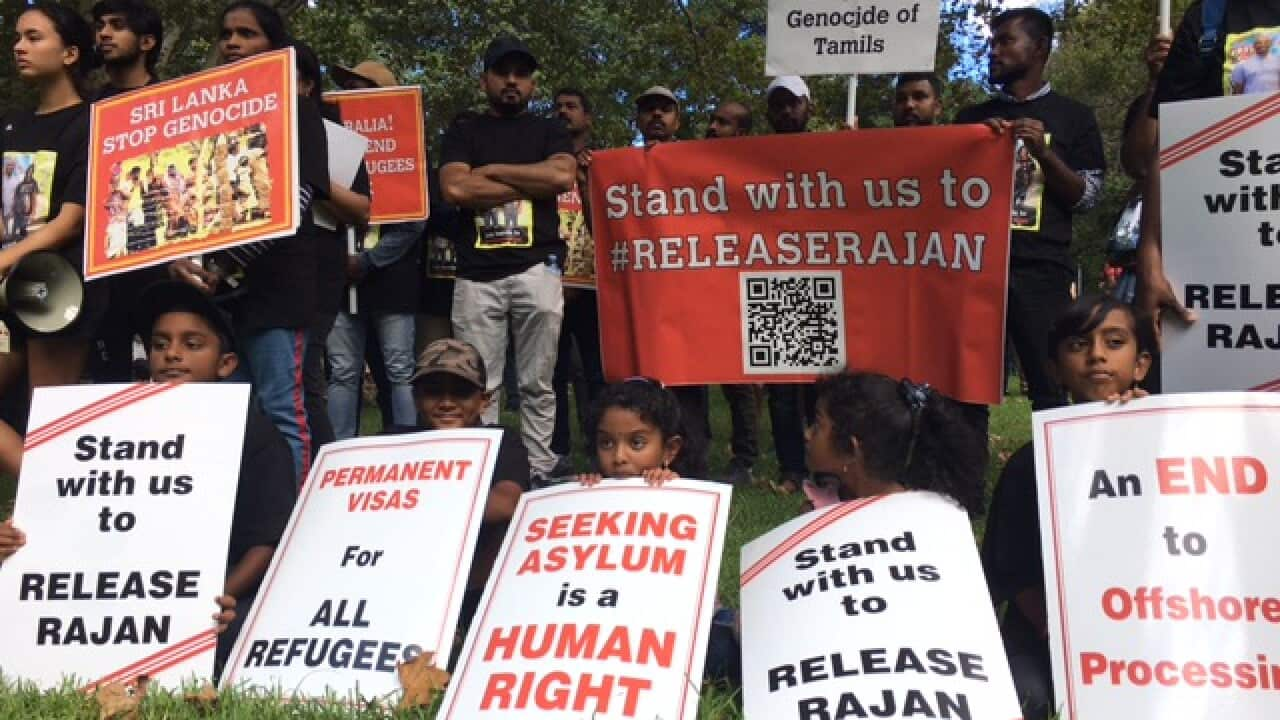Every night when Mary tucks her daughter to sleep in their home in regional Australia, the little girl asks when she’ll finally be able to see her father and siblings again.
“I don’t know what I can say,” Mary says.
“I tell her, 'They can’t come, because the Australian government won’t allow it'.”
Rohingya refugee Ali’s wife and two children are living in a refugee camp in Bangladesh but he, too, is not allowed to bring his family with him to Australia because he is on a temporary protection visa.
“I am here, my body is here, but my mind and heart are not here. They are always with my family,” he says.
When Nayser was told he’d be sent to Manus Island while his family was in community detention in Australia, the asylum seeker was in shock.
“I felt numb,” he says.
“My heart and brain stopped working. I couldn’t muster the strength to say a word. I was completely frozen.”
They’re three separate stories, but all connected by what the Human Rights Law Centre (HRLC) says is a “strategic, deliberate and coercive” campaign by the Australian government to separate refugees from their families.
In a new report, in which the stories are included, the HRLC has criticised government policies that keep families separated by denying or deprioritising family reunification visas and preventing them from reuniting in Australia.
The HRLC says one method the government denies permanent residents who arrived by boat from reuniting with their families is by “endlessly deprioritising” their visa applications.
A ministerial direction orders that applications for family reunification by those who arrived by boat be given the “lowest processing priority”.
“Consequently, the effect of Direction 80 is that thousands of people with refugee status who are living in Australian communities are prevented from ever successfully bringing family members to reunite with them in Australia, because their applications are never processed,” the report says.
That’s the case of Afghan Hazara refugee Hassan, whose wife died while he was waiting tor their reunification visa to be granted.
While Hassan is now a permanent resident, he says his application was always at the bottom of the pile because he sought asylum by boat.
His wife died within a year of getting sick and now his three children are living illegally as refugees in Pakistan.
“Since their mother’s death, I think their mental health is suffering. I worry about their safety,” Hassan says.
“My kids cannot go back to Afghanistan because it is unsafe. They are living alone as illegal refugees with no hope for the future in Pakistan. And I can’t bring them here. This is very painful to understand and explain to them, but this is my current situation,” he says in the report.
Another means of separation, the HRLC says, is by completely banning family reunion for refugees who hold temporary protection visas.
Meanwhile, families are also separated by offshore detention policies, where some are in offshore detention while family members are in Australia.
Human Rights Law Centre senior lawyer Josephine Langbien said Australia’s family migration system was “fundamentally broken” and causing immense suffering for refugee families.
“There are thousands of people across Australia who are separated indefinitely from their loved ones, because the Australian government has made a deliberate choice to use family separation to try to prevent people from exercising their right to seek safety.”
The HRLC says the policies could amount to a breach of international laws including the essential right to family unity, and Australia's obligations under Articles 17, 23 and 24 of the International Covenant on Civil and Political Rights.
It says the government should scrap the "punitive" policies and allow families to be reunited.
“A fairer family migration system can play a crucial role in our recovery from COVID-19 as Australia begins to reconnect with the rest of the world,” Ms Langbien added.
The Department of Home Affairs told SBS News the country's border policies remain steadfast.
"Australia’s strong border protection measures ensure that no benefit is obtained from entering Australia illegally," a spokesperson said in a statement.
"Regional processing, temporary protection visas and limitations on family reunion aim to deter people from relying on people smugglers and encourage people to take lawful migration pathways to Australia.
"The application of these policies has meant that, in some cases, family members arriving at different times may be subject to different policy settings and arrangements."
* Names of refugees used in this report are pseudonyms used by the Human Rights Law Centre to protect their identities.













